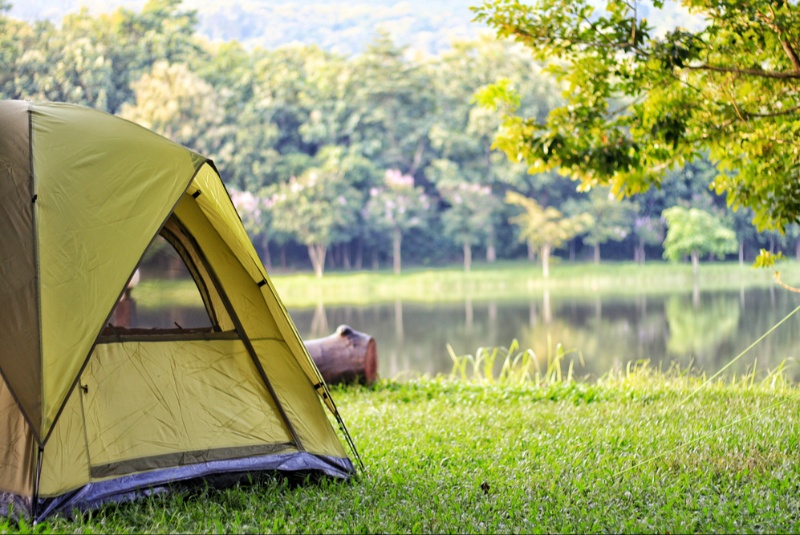Camping is an exhilarating outdoor activity that allows you to connect with nature and escape the hustle and bustle of daily life. Whether you're a seasoned outdoor enthusiast or a novice camper, having the right camping tent is essential for a comfortable and enjoyable camping experience. With a wide variety of tents available on the market, choosing the perfect one can be overwhelming. To help you make an informed decision, here are some essential tips for purchasing camping tents.
Consider Your Camping Needs and Preferences
Before purchasing a camping tent, it's crucial to consider your camping needs and preferences. Think about the type of camping trips you'll be taking—are you planning on backpacking to remote locations, car camping at established campgrounds, or embarking on extended wilderness expeditions? Consider the number of people who will be using the tent, the weather conditions you'll encounter, and the features you desire, such as interior space, ventilation, and storage options. By assessing your camping needs and preferences, you can narrow down your options and choose a tent that meets your requirements.
Choose the Right Tent Size and Capacity
When selecting a camping tent, it's essential to choose the right size and capacity to accommodate your camping group comfortably. Tents are available in various sizes, ranging from one-person bivvy shelters to multi-room family tents that can sleep eight or more people. Consider the number of campers who will be sharing the tent, as well as any gear or equipment you'll need to store inside. Keep in mind that tents are typically labeled with their maximum capacity, but it's essential to factor in sleeping arrangements and personal space preferences when determining the appropriate size.
Determine the Tent Seasonality and Weather Resistance
Camping tents are categorized based on their seasonality and weather resistance, ranging from lightweight three-season tents designed for spring, summer, and fall use to heavy-duty four-season tents built to withstand harsh winter conditions. Consider the climate and weather conditions you'll encounter on your camping trips and choose a tent that provides adequate protection and comfort. Look for tents with waterproof and UV-resistant materials, reinforced seams, and sturdy poles to ensure durability and reliability in various weather conditions.
Evaluate Tent Features and Construction
When shopping for camping tents, pay attention to the tent's features and construction to ensure it meets your needs and preferences. Consider factors such as tent shape and design, door and window configurations, ventilation options, and ease of setup. Look for tents with spacious interiors, multiple entry points, and mesh panels for airflow and visibility. Additionally, consider the tent's construction quality, including the materials used, stitching and seam sealing, and overall durability. Choose a tent that strikes the right balance between functionality, comfort, and durability for your camping adventures.
Check Tent Weight and Packability
Weight and packability are essential considerations, especially if you'll be backpacking or hiking to your camping destination. Lightweight and compact tents are ideal for backpackers and adventurers who need to carry their gear over long distances. Look for tents made from lightweight materials such as nylon or polyester, with collapsible poles and minimalistic designs to reduce bulk and weight. Consider the tent's packed size and storage options, such as stuff sacks or compression straps, to ensure it fits easily into your backpack or gear storage system.

Set a Budget and Compare Prices
Before making a final decision, set a budget for your camping tent purchase and compare prices from different retailers and brands. Camping tents come in a wide range of price points, from budget-friendly options to high-end models with advanced features and materials. Determine how much you're willing to spend and prioritize features and quality within your budget range. Keep in mind that while a higher price may indicate better quality and performance, there are plenty of affordable tents that offer excellent value and reliability for recreational camping use.
Read Reviews and Seek Recommendations
Before making a final purchase decision, take the time to read reviews and seek recommendations from other campers and outdoor enthusiasts. Websites, forums, and social media platforms are excellent resources for finding honest and unbiased reviews of camping tents from real users. Pay attention to feedback regarding durability, weather resistance, ease of setup, and overall performance to help inform your decision. Additionally, don't hesitate to reach out to friends, family members, or outdoor experts for recommendations and advice based on their camping experiences.
Test Pitch the Tent Before Your Trip
Once you've selected a camping tent, it's essential to test pitch the tent before your camping trip to familiarize yourself with the setup process and ensure everything is in working order. Set up the tent in your backyard or a nearby park and practice assembling the poles, attaching the rainfly, and staking out the tent corners. Take note of any missing or damaged parts, defects in construction, or issues with the setup process, and contact the manufacturer or retailer if necessary. Testing pitch the tent beforehand will help streamline the setup process and prevent any surprises or difficulties during your camping adventure.
Finding the Perfect Camping Tent
Choosing the right camping tent requires careful consideration of your camping needs and preferences, as well as factors such as tent size and capacity, seasonality and weather resistance, features and construction, weight and packability, budget, and user reviews. By following these essential tips and taking the time to research and compare different options, you can find the perfect camping tent that provides comfort, protection, and reliability for your outdoor adventures. Remember to test pitch the tent before your trip to ensure a smooth and enjoyable camping experience.




